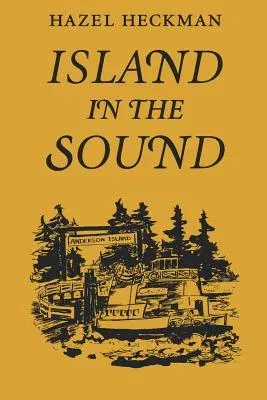Anderson Island in Puget Sound exists as a kind of tiny, autonomous
world. Sharply defined by bitterly cold water, deep enough to float a
destroyer; by dense fog; and by dangerous tide rips caused by the narrow
channels, it is a community without an officer of the law, a minister of
the gospel, or a doctor of medicine. Nevertheless, it is a tightly knit
and well-organized microcosm in its wilderness environment.
Hailed as a 'local classic' by Murray Morgan and Wallace Stegner, Hazel
Heckman's story of this Northwest island will have strong appeal for
devotees of island life anywhere. The Pacific Northwesterner will learn
much about his native soil, but this book will find an audience far
beyond the shadows of Mount Rainier and the wild Olympics. It will be
especially treasured by those who feel deep nostalgia for the leisurely
pace of life in a small community.
Wit, depth of perception, engaging literary style -- all are warmly
present in this saga of a Midwestern woman's experience with a new
homeland, an environment strange and very different from the dusty
Oklahoma country where she had lived for the previous twenty years.
Feeling at first that the perpetual rain and gray skies were a high
price to pay for a relatively comfortable year-round climate, Mrs.
Heckman came to like, and eventually to love, the Northwest only after
she discovered Anderson Island.
Located near McNeil Island in upper Puget Sound, Anderson has
approximately ninety permanent residents. Most of them are descendants
of the original Scandinavian settlers of the Island, and they seem to
have inherited the individualism and self-reliance necessary to survive
in a hostile environment. Thus, 'modern' innovations, such as regular
ferry service and electricity, are comparatively recent developments.
This book is the lively chronicle of Anderson Island -- its history, its
residents, its idiosyncrasies, its commonplaces. Mrs. Heckman's lyrical
evocations of the natural life have captured the essence of Anderson
Island.

